Current Committee Members

Maria K. Alberto is a PhD candidate in English at the University of Utah. Her work has been published in Humanities, Transformative Works and Cultures, and Mythlore, as well as edited collections including A Fan Studies Primer, Fandom The Next Generation, Roleplaying Games in the Digital Age, and New Frontiers for Popular Romance. She is also co-editing a collection of essays focused on the Chinese drama The Untamed with Dr. Yue Wang.
At this very moment, she is probably working on her dissertation regarding canon(s) or playing D&D. Either way, coffee is involved.
Emily Coccia is the Robert A. Oden Jr. Postdoctoral Fellow for Innovation in the Liberal Arts at Carleton College. Before joining Carleton’s English Department, she received a Ph.D. in English and Women’s and Gender Studies from the University of Michigan. Focusing on nineteenth-century genres of working-class and mass-popular literature, her first book project considers how American working women’s fannish reception practices allowed them to envision queer futures and cultivate spaces for pleasure and intimacy.
In addition to her nineteenth-century work, she also researches and teaches about femslash fandoms, affective ambivalence, and depictions of gender, desire, and eroticism in contemporary television. She has published in Legacy: A Journal of American Women Writers, Transformative Works and Cultures, Emily Dickinson Journal, and Signs: Journal of Women in Culture and Society.
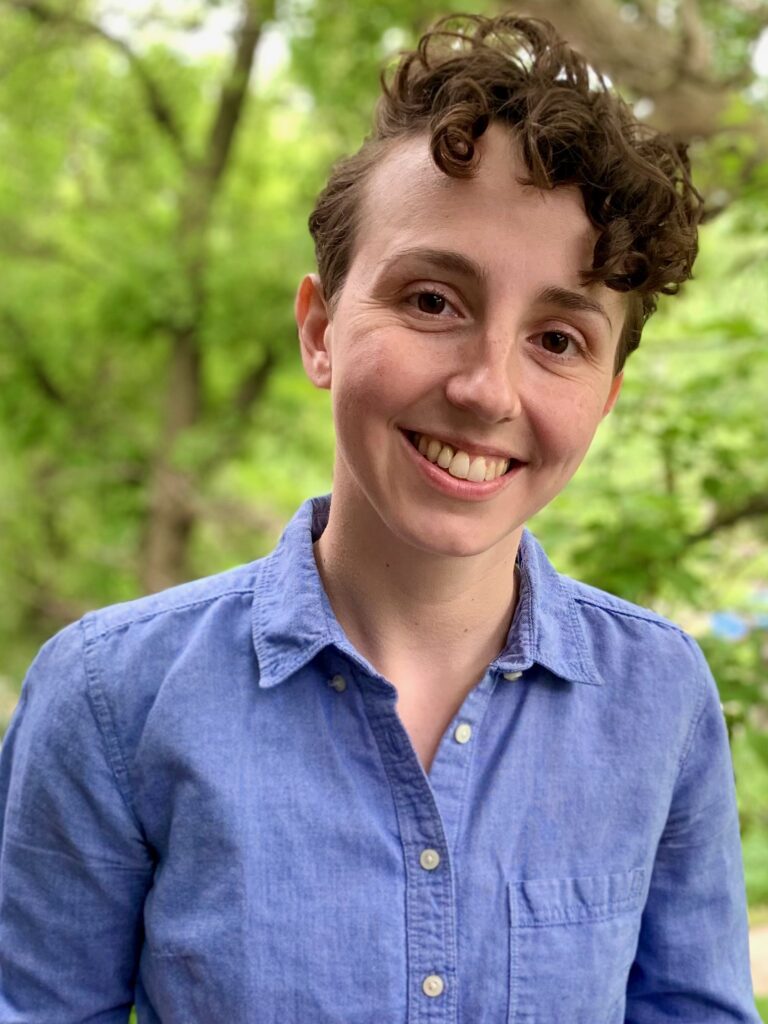

Renee Ann Drouin is an Assistant Teaching Professor of Rhetoric and Composition at Penn State Harrisburg. Within the classroom, she loudly discusses video games injustices and the importance of audience awareness.
Her research blends online harassment, anti-fandom, and rhetoric to examine language patterns and fans’ responses to crises. Works on these topics and efforts to create ethical research methods online have been published in The Journal of Fandom Studies and Fan Studies: Methods, Ethics, Research. Renee is currently working on a book that tracks a decade of online anti-fandom, with a focus on victim responses to harassment.
In her free time, she is ignored by her dog and, in her grief, has turned to One Piece.
Gwen Nisbett’s research examines the intersection of mediated social influence, political engagement, and popular culture. Her research incorporates a multi-methods approach to understanding the influence of fandom and celebrity in social and civic engagement. She has published in journals such as Political Communication, Health Communication, and the Atlantic Journal of Communication. She teaches courses in social influence, social media, and ethics in strategic communication.
Gwen is a native of Norman, OK and is a die-hard Sooner fan.

Yvonne Gonzales
J Overholser is a queer, nonbinary PhD candidate in Sociology at the University of Calgary. Before coming to Canada, ze earned zir Master’s degree in Gender Studies from the University of Leeds. Their thesis explores how trans* individuals use their engagement with online fanworks in their exploration of gender. This work is first and foremost an exploration of trans* experiences from the trans* perspective. Their other work focuses on queering traditional research methods, monsters and the monstrous, fandoms, and media such as fanworks, comics, and ttrpgs.
But check back next week and that list will probably grow.
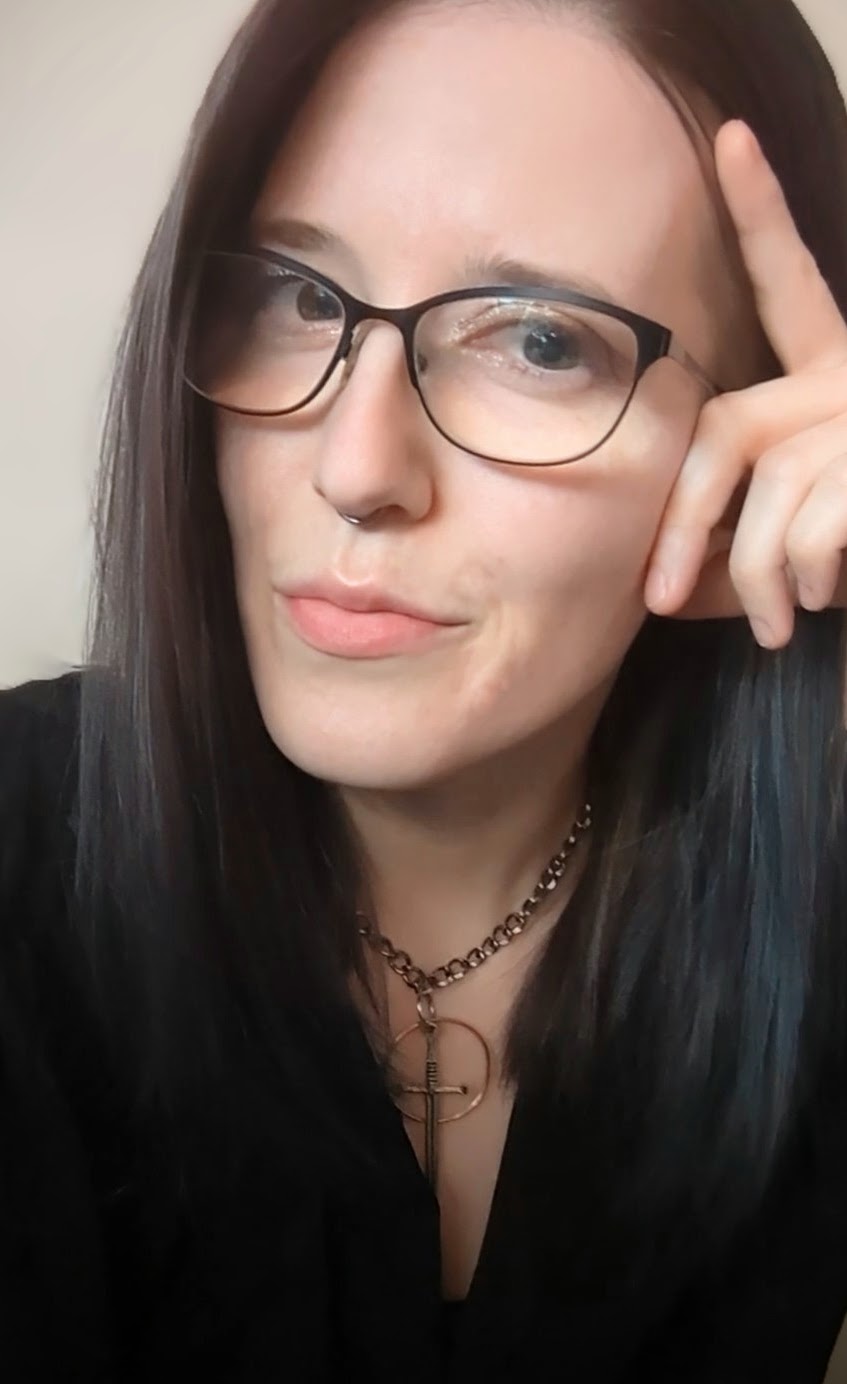

Jonathan A. Rose is an assistant professor for English Cultural and Media Studies at the University of Passau, Germany. In his PhD dissertation, he examined transgender representation in fanfiction and its cultural contexts. Guided by an interest in all kinds of marginal(ized) figures like trans people and fat people, aliens, zombies and fungi, his research lies at the intersections of literary, cultural, fan, media, and trans(gender) studies, with a focus on genders and sexualities, adaptation and related phenomena, as well as fandom and fanfiction. Recent publications include “‘My Male Skin’: (Self-)Narratives of Transmasculinity in Fanfiction” (European Journal for the Study of English, 2020), “The Last of Us: Fungi, EcoGothic Zombies and Posthuman Hybrids in The Girl with All the Gifts” (Journal for the Study of British Cultures, 2020), and “Making the Mother: Pro/Creation and Female Agency in the Alien Series” (with Florian Zitzelsberger, Oxford University Press, forthcoming
2023).
Su Sakarya holds a BA in English Language and Literature from the University of Edinburgh and an MA in International Relations from Boğaziçi University, with a focus on Europe, Turkey, and the Middle East. Later, Su pursued an MA in New Media and Digital Culture at Utrecht University, researching “Translating Boys Love” to examine Turkish BL scanlation communities. Su’s work focused on how digital platforms and transformative fandoms empower marginalized groups and foster resilience in global cultural networks. Su has been working as a digital communications professional and has previously volunteered with the OTW and several scanlation groups.

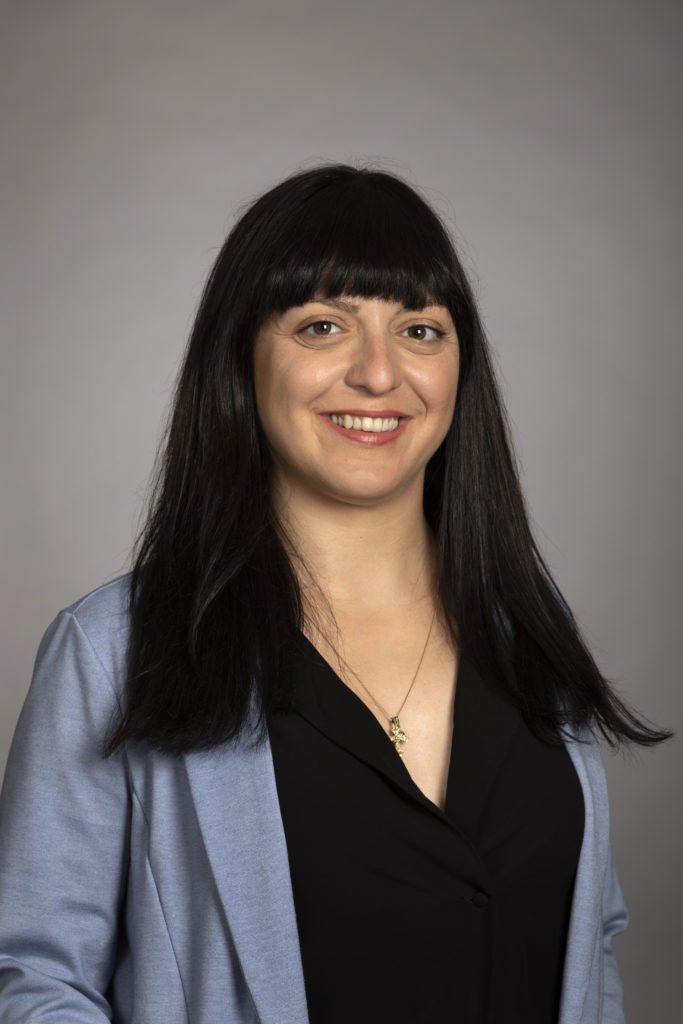
Effie Sapuridis is a Media Studies PhD candidate in the Faculty of Information and Media Studies at Western University. Her dissertation “Networked (Re)Storying on New Media Platforms” explores digital storytelling by fans on TikTok. In particular, this project is interested in restorying of identity (especially via metadata), the negotiated use of the creator’s physical body, and the ability to collaboratively (re)construct the storyworld. Her work has been published in Transformative Works and Cultures (TWC) and Humanities. Additionally, Effie is the Outreach and Communications Editor for TWC and the Reviews Editor for the Journal of Fandom Studies.
She lives in NYC with her husband and their dog, Betty. If she’s not at her desk, she’s either doing a puzzle, being immersed in the Gordon Ramsay-verse with her spouse, or trying to get lottery tickets to the latest Broadway show.
Jenessa Williams (she/her) is a Postdoctoral Researcher of Communication at Stanford University and a PhD graduate of the University of Leeds, UK. She is currently working on her first monograph about #MeToo and Music Fandom, exploring the way in which indie-alternative and hip-hop fan communities respond to allegations of celebrity sexual abuse.
Her wider research interests explore race, gender and feminist representation in music fandom/music journalism, with links to the study of online community amidst the culture wars. Jenessa also works as a music journalist, writing regularly for the likes of the Guardian, NME, The Forty-Five, DIY, Alternative Press and Music Week.
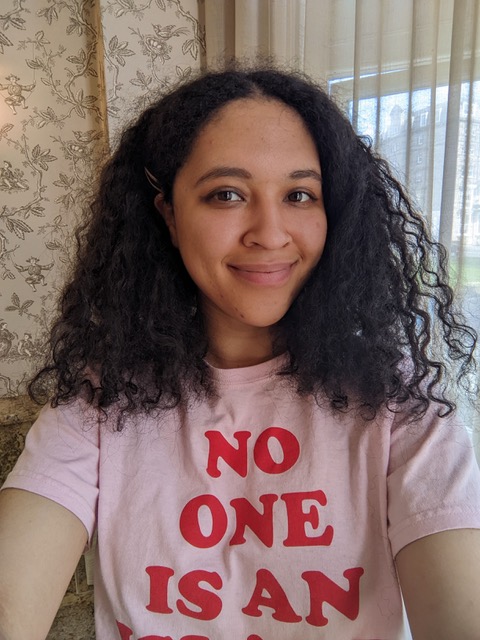
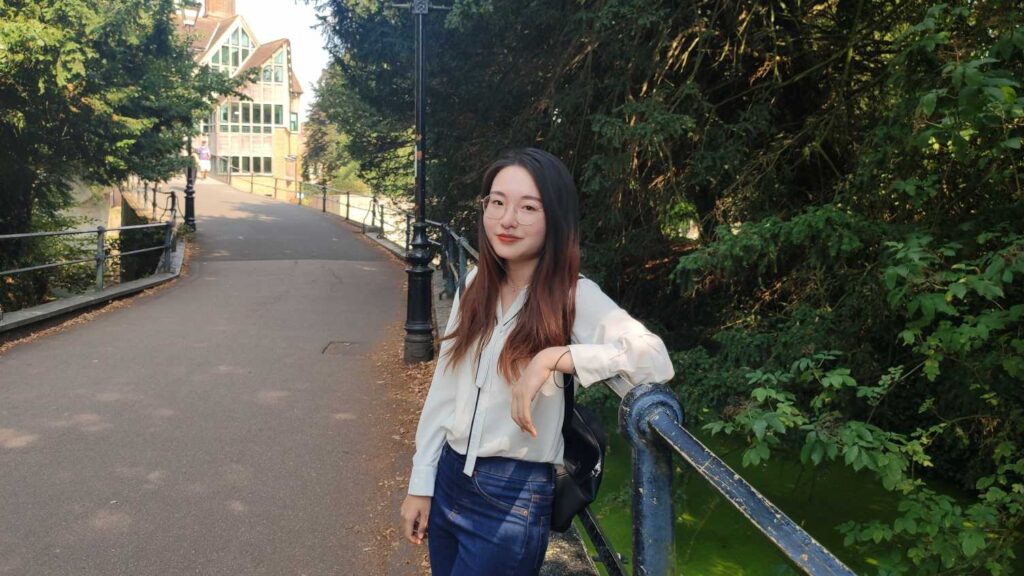
Chi Zhang (she/her) is a PhD candidate in the School of Media and Communication at the University of Leeds. Her research interests include fandom studies, East Asian popular media and culture, gender studies, and feminist studies. She has over two years of experience working at Chinese universities. She has participated in several academic conferences, including the FSNNA Conference, the Celebrity Studies Conference, MeCCSA, IAMCR, NCA, and ICA.
Past members of the organizing committee include Paul Booth, Kristina Busse, Lori Morimoto, EJ Nielsen, Sarah Sinwell, Louisa Stein, Lesley Willard, Benjamin Woo, and Jacinta Yanders.

